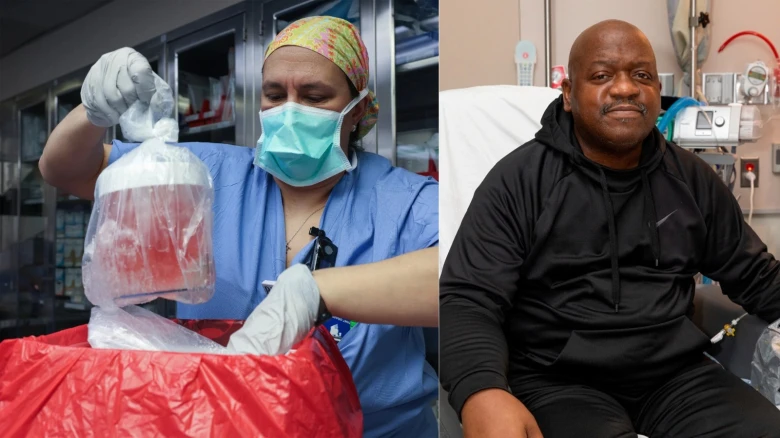Regional

Slayman's family expressed gratitude to his doctors for their unwavering efforts in providing him with additional time...
Digital Desk: Richard “Rick” Slayman made medical history when he became the first living person to undergo a genetically modified pig kidney transplant in March at Massachusetts General Hospital. However, nearly two months after the groundbreaking procedure, Slayman has tragically passed away. His family and the hospital confirmed the news, expressing their deep sadness at his loss.
Surgeons had hoped that the pig kidney would provide Slayman with a new lease on life for at least two years. While the transplant team clarified that they had no indication his death was a result of the transplant, Slayman's passing highlights the challenges and uncertainties of pioneering medical interventions.
Slayman, a resident of Weymouth, Massachusetts, had previously undergone a kidney transplant in 2018 but had to return to dialysis last year when signs of failure appeared. When complications arose, his doctors suggested the experimental pig kidney transplant as a potential solution.
In a statement, Slayman's family expressed gratitude to his doctors for their unwavering efforts in providing him with additional time. They emphasized Slayman's desire to offer hope to thousands of others awaiting transplants, a goal he achieved by bravely undergoing the pioneering procedure.
Xenotransplantation, the process of transplanting cells, tissues, or organs from animals to humans, has long been hindered by immune rejection. However, recent advancements, such as genetically modifying pigs to make their organs more compatible with humans, have renewed hope for addressing the critical shortage of transplant organs.
With over 100,000 individuals on the national transplant waiting list, predominantly kidney patients, and thousands dying each year before receiving a transplant, innovative approaches like xenotransplantation offer a glimmer of hope for those in need. Despite the setback, Slayman's legacy as a trailblazer in medical science and his enduring optimism will continue to inspire efforts to revolutionize organ transplantation and save lives.
Leave A Comment